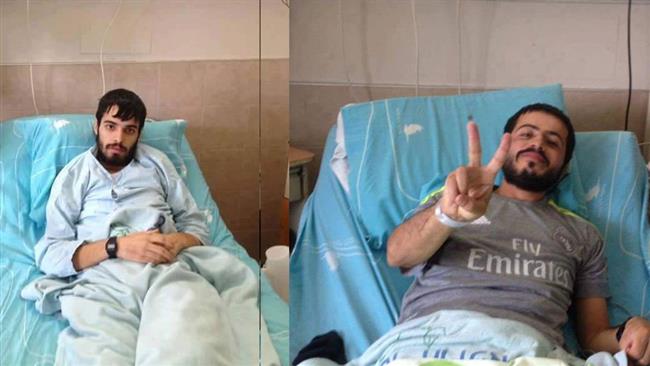
RNA - Issa Qaraqe, the head of the rights group, said in a Thursday statement that Israeli authorities have “deliberately” sought to kill the Palestinian protesters by allowing their health condition to deteriorate, and forcing them into “difficult circumstances” at the same time.
Qaraqe added that 20-year-old Anas Ibrahim Shadid and Ahmad Abu Farah, 29, both residents of the southern occupied West Bank city of Surif, have gone without food for 76 and 77 days, respectively.
He termed Israel’s slow “killing of Palestinian hunger strikers” a “crime,” and urged the international community to intervene and stop the practice.
Qaraqe added that Israel’s treatment of Palestinian hunger strikers represents a “humanitarian crisis,” and that Israel is fully responsible for the miserable conditions of Palestinians in Israeli prisons that force scores to go on hunger strike.
The Palestinian campaigner said a period of 75 days is the “maximum” time that a hunger striker could continue their strike only consuming water, noting that Shadid and Abu Farah were both experiencing worsening health as their organs are failing.
Qaraqe added that two other Palestinian prisoners are also currently on hunger strike, naming them as Ammar Ibrahim Hamour and Kifah Hatab.
Shadid and Abu Farah were arrested on August 1, and are being held in solitary confinement at Israel’s high-security Megiddo prison ever since.
The young Palestinian men stopped eating their food portions in late September.
More than 6,500 Palestinians are reportedly held at Israeli jails. Hundreds of the inmates have apparently been incarcerated under the practice of administrative detention, which is a policy under which Palestinian inmates are kept in Israeli detention facilities without trial or charge.
Some Palestinian prisoners have been held in administrative detention for up to eleven years.
The Palestinian inmates regularly hold hunger strikes in protest at the administrative detention policy and their harsh prison conditions.
847/940